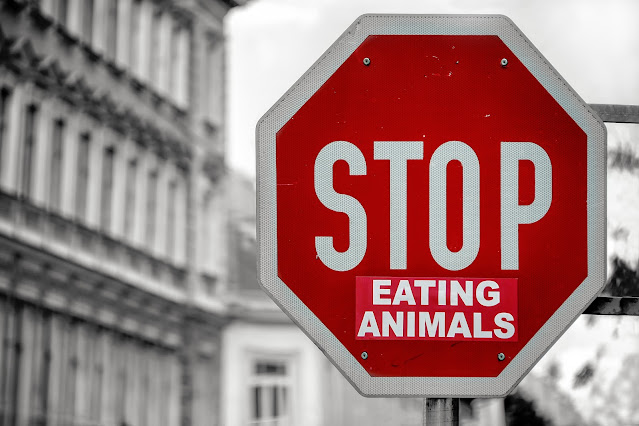Our Step-by-Step Guide to Effective Vegan Activism: Promoting Veganism, Raising Awareness, and Inspiring Change
Introduction:
Vegan activism plays a vital role in creating a more compassionate world by advocating for animal rights, promoting ethical choices, and raising awareness about the benefits of a plant-based lifestyle. This step-by-step guide provides a roadmap to engage in effective vegan activism and inspire positive change within your community.
Step 1: Educate Yourself
- - Research and understand the key reasons for embracing veganism, such as animal rights, environmental sustainability, and health benefits.
- - Stay updated with the latest scientific studies, documentaries, and books related to veganism to strengthen your knowledge base.
- - Familiarize yourself with common misconceptions and counterarguments surrounding veganism to better respond during conversations.
Step 2: Develop a Personal Connection
- - Reflect on your vegan journey and identify the aspects that resonate with you the most. This will help you articulate your passion and connect with others authentically.
- - Understand your audience's interests, concerns, and values to tailor your message accordingly.
- - Craft a compelling personal story that highlights your transition to veganism and its positive impact on your life, animals, and the environment.
Step 3: Start Conversations
- - Engage in respectful and open dialogues with friends, family, colleagues, and community members about veganism.
- - Approach conversations with empathy, active listening, and a non-judgmental attitude.
- - Use thought-provoking questions to encourage critical thinking and plant seeds of curiosity.
Step 4: Utilize Social Media and Online Platforms
- - Leverage the power of social media platforms to share educational content, recipes, success stories, and inspirational messages.
- - Create visually appealing and shareable graphics, videos, or blog posts that inform and inspire your audience.
- - Engage in online discussions, respond to comments, and provide credible resources to support your claims.
Step 5: Organize Events and Workshops
- - Plan and host vegan-themed events, workshops, or cooking classes in your local community.
- - Collaborate with local vegan businesses, organizations, and experts to enhance the credibility and reach of your events.
- - Offer educational resources, recipe booklets, and handouts during events to provide tangible takeaways for attendees.
Step 6: Engage with Local Institutions and Media
- - Reach out to local schools, universities, community centers, and religious organizations to conduct vegan awareness talks or workshops.
- - Write letters to the editors of local newspapers or contribute articles to raise awareness about veganism and its positive impact.
- - Seek opportunities for radio or TV interviews to share your story and educate a broader audience.
Step 7: Support and Collaborate with Existing Vegan Organizations
- - Connect with local and national vegan organizations to learn from experienced activists and contribute to their initiatives.
- - Volunteer your time and skills to assist with campaigns, protests, or community outreach events.
- - Join or start local vegan meet-up groups to build a supportive community and facilitate knowledge sharing.
Step 8: Lead by Example
- - Embrace a well-balanced and vibrant vegan lifestyle to inspire others through your actions.
- - Share delicious vegan recipes, food recommendations, and dining experiences to demonstrate the abundance and variety of vegan options.
- - Practice kindness and compassion in all aspects of your life, leading by example and fostering a positive image of veganism.
Summary:
By following these step-by-step guidelines, you can become an effective vegan activist and make a significant impact in promoting veganism, raising awareness, and inspiring positive change. Remember, every conversation, event, and action contributes to creating a more compassionate world for animals and a sustainable future for all.
Resources:
Vegan Outreach (www.veganoutreach.org): A nonprofit organization dedicated to promoting veganism through grassroots outreach, community events, and educational materials.
The Vegan Society (www.vegansociety.com): A reputable organization that provides resources, campaigns, and information on vegan living, including guides for effective activism.
Animal Equality (www.animalequality.org): An international organization focused on animal rights and welfare, offering resources, campaigns, and tools for effective activism.
Mercy For Animals (www.mercyforanimals.org): An animal advocacy organization that works to prevent cruelty to farmed animals and promotes veganism through undercover investigations, campaigns, and educational materials.
"Eating Animals" by Jonathan Safran Foer: This book provides a thought-provoking exploration of the ethics and consequences of animal agriculture, which can inform and inspire activism.
"Dominion" (documentary): A powerful documentary that exposes the hidden realities of animal exploitation across various industries, providing compelling footage and interviews to raise awareness.
"The Animal Activist's Handbook" by Matt Ball and Bruce Friedrich: This book offers practical advice and strategies for effective animal advocacy, including tips on communication, organizing events, and engaging with the public.
"How to Create a Vegan World" by Tobias Leenaert: This book delves into effective communication techniques and strategies for spreading veganism, promoting incremental change, and fostering a more vegan-friendly world.
Veganuary (www.veganuary.com): A campaign that encourages people to try veganism for the month of January, offering resources, recipes, and support for individuals interested in adopting a plant-based lifestyle.
Remember, these resources provide a starting point, and it's always recommended to explore a variety of perspectives and sources to develop a well-rounded understanding of vegan activism.





Comments
Post a Comment
We welcome your input!